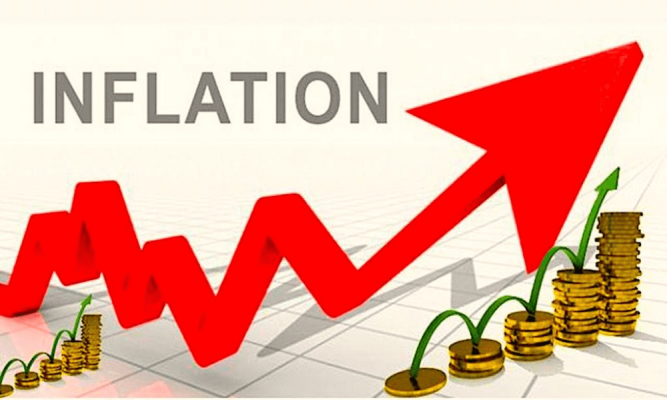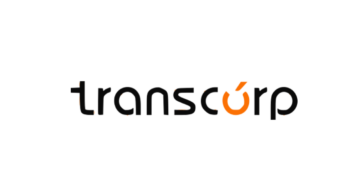After a two month’s decline, the inflation rate, which measures the rate at which prices of goods and services rise in the country, increased to 32.70 per cent in September, indicating renewed economic pressures, primarily fueled by rising food and energy prices.
This is even as the World Bank is projecting that interest rates in Nigeria will remain higher for longer as the country grapples with high inflation rate.
Latest inflation figure released by the National Bureau of Statistics (NBS) showed that headline inflation rose to 32.70 per cent in September from 32.15 per cent in August, reflecting an increase of 0.55 per cent. On a year-on-year basis, it increased by 5.98 per cent from 26.72 per cent in September 2023.
On a month-to-month basis, the inflation rate in September 2024 was 2.52 per cent, which is 0.30 per cent higher than the 2.22 per cent recorded in August 2024. The rise in headline inflation is fuelled by the increase in food inflation, a significant driver of overall inflation. September food inflation rose to 37.77 per cent up from 37.52 per cent in August.
On a month-on-month, food Inflation rate was 2.64 per cent in September 2024, reflecting a 0.27 per cent increase from the 2.37 per cent recorded in August 2024.
Meanwhile, core inflation, which excludes volatile agricultural produce and energy prices, stood at 27.43 per cent in September, a slight decline from the 27.58 per cent figure in August 2024. Month-on-month, the core Inflation rate rose to 2.10 per cent in September 2024 from 2.27 per cent in August 2024, marking a 0.17 per cent decrease.
Meanwhile, the World Bank projects a 3.3 per cent growth for Nigeria in 2024.
The Central Bank of Nigeria (CBN), had, at its last Monetary Policy Committee (MPC) meeting, taken a further tightening stance and raised the monetary policy rate (MPR) by 50 basis points to 27.25 per cent from 26.75 per cent. The hike brings the total rate increase so far in 2024 to 850bps. This was to quell inflation in the country.
According to the African Pulse report of the World Bank titled ‘Transforming Education for Inclusive Growth,’ Nigeria’s inflation peaked at 34.2 per cent year-on-year in June 2024, before easing to 33.4 per cent in July and further to 32.2 per cent in August.
The report attributed the inflationary spike to the effects of a weakened naira earlier in the year and the removal of the gasoline subsidy in the second half of 2023. While inflation has been slowing down, a recent 40-45 per cent increase in gasoline prices in September threatens to reverse this disinflationary trend it states. Despite this, the consolidation of reforms is expected to boost Nigeria’s growth in the coming years.
The report noted that central banks in countries grappling with double-digit inflation, such as Nigeria, Angola, and Sierra Leone, will likely maintain high monetary policy rates for an extended period to manage inflationary pressures.
“Central banks in countries that still have double-digit inflation and weakened domestic currencies such as Angola, Nigeria, and Sierra Leone will keep monetary policy rates higher for longer and, in fewer cases, they may increase their policy rates, particularly in countries where inflation rates still have not peaked. Broadly, currency weakness, slow fiscal adjustment, and cost pressures are among the factors driving these countries to keep a tighter stance for a longer period.
“For instance, Ethiopia, Ghana, and Nigeria are among the worst performing in Africa this year, and their currencies continue weakening while demand for foreign exchange remains pressing. Measures to mitigate social unrest associated with the high cost of living in Angola doubling of the minimum wage and Nigeria partially reinstating fuel subsidies) are putting pressure on their public finances,” it added.
The World Bank projected that Nigeria’s economy will grow by 3.3 per cent in 2024, with an even stronger growth forecast of 3.6 per cent in 2025-26, as the country’s macroeconomic and fiscal reforms begin to show positive results.
In the broader Sub-Saharan Africa region, the report projects to see moderate growth of 3 per cent in 2024, up from 2.4 per cent in 2023. Despite this recovery, it stated that is not enough to lift millions out of poverty, with growth per capita expected to be a sluggish 0.5 per cent, compared to an average of 2.4 per cent between 2000 and 2014. The World Bank warned that challenges such as conflict, climate change, and soaring debt service costs continue to undermine progress in the region.
World Bank Chief Economist for the Africa Region, Andrew Dabalen said: “African governments are making strides to stabilise their finances and close budget gaps. But high debt burdens are limiting investments in critical areas like education, health, and infrastructure, which are essential for long-term, inclusive growth.”
The report highlighted that 34 per cent of government revenues in Sub-Saharan Africa will be spent on debt servicing in 2024, leaving little room for productive investments.
Some countries are showing brighter prospects, however, Côte d’Ivoire, Senegal, Uganda, and Tanzania are expected to achieve growth rates above five per cent in 2024, driven by private consumption, investment, and infrastructure development. Côte d’Ivoire, in particular, is forecasted to grow at 6.5 per cent, bolstered by prudent macroeconomic policies and recent oil discoveries.
The report underscored the critical need for Sub-Saharan African countries, including Nigeria, to invest in human capital to drive sustainable growth. Nigeria’s rapidly expanding working-age population presents both an opportunity and a challenge. Despite progress in child survival rates, the region spends less on education per capita than any other in the world.
To achieve universal education by 2030, the report estimates that Africa’s education systems will need to absorb 170 million more children and adolescents, requiring an additional 9 million classrooms and 11 million teachers.
Dabalen reiterated in a statement that Africa’s working-age population is expanding faster than any other region, driven by progress in child survival over the last two decades, and that Sub-Saharan Africa spends less on education per capita than any other region.
To achieve universal education by 2030, the authors of Africa’s Pulse estimate that education systems would need to absorb about 170 million more children and adolescents, requiring an estimated 9 million new classrooms and 11 million new teachers.
This is a daunting challenge, but the region has already made significant strides: 270 million children are enrolled in primary and secondary schools today, and primary school completion rates have improved substantially since 2000.
Dabalen added that: “Looking ahead, Africa’s youth will need to be well educated and appropriately skilled to access better jobs and take advantage of new digital and green economy opportunities. Evidence-based planning and smart spending will be crucial to expanding access while improving learning and employment outcomes.”
Furthermore, the report stated that, currently, 7 in 10 children in Sub-Saharan Africa do not have access to pre-primary education, and fewer than 1.5 per cent of youth aged 15 to 24 are enrolled in vocational training, compared to 10 per cent in high-income countries and that closing these gaps is vital for unlocking Sub-Saharan Africa’s economic potential and driving sustainable, inclusive growth.
“Supporting entrepreneurship and new startups, allowing small businesses to grow, and attracting larger and established firms is also essential so that skilled graduates find meaningful job opportunities when they try to enter and advance in the workforce,” it stated.





